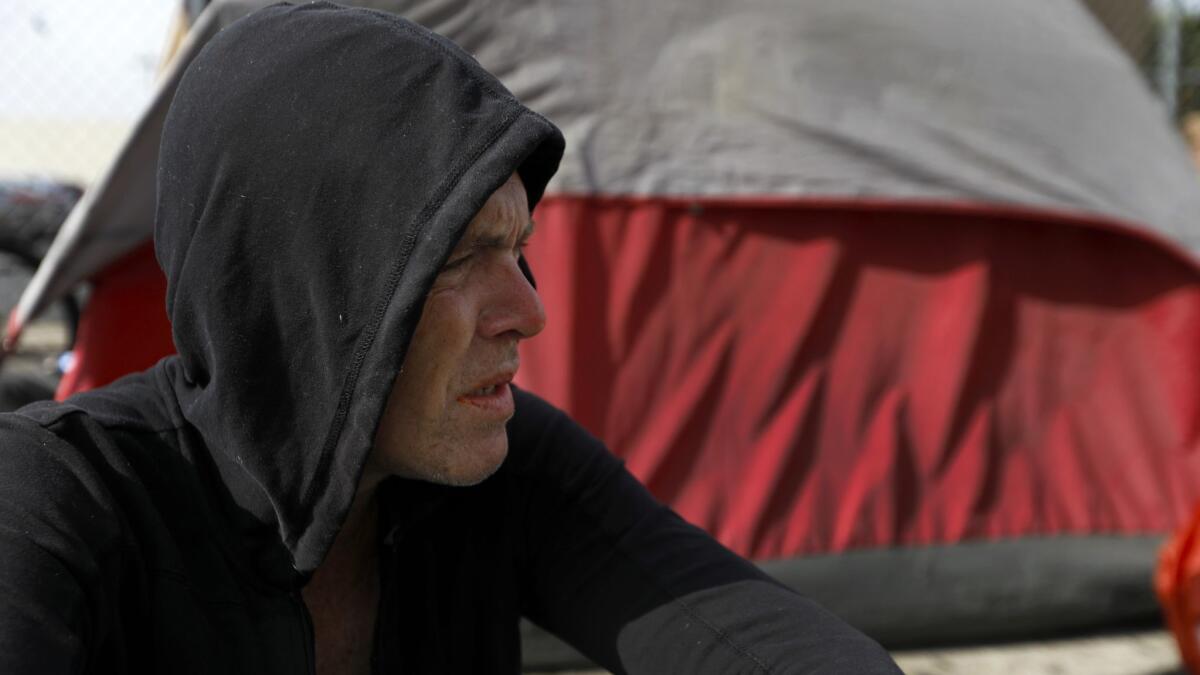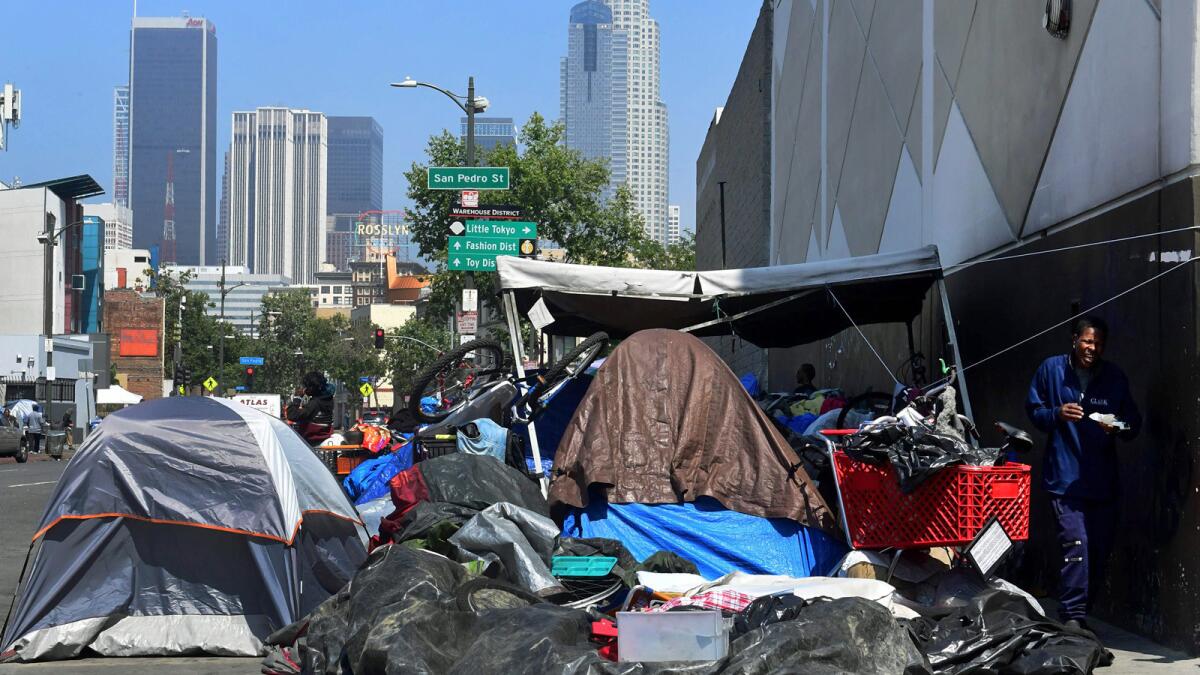L.A. agreed to let homeless people keep their skid row belongings. That could change

- Share via
Property owners and residents of shelters on skid row are going to court to block a contentious legal settlement that restricts Los Angeles’ ability to clear homeless encampments in the heavily blighted downtown district.
In a petition to intervene in the case, property owners and residents argue the settlement “will only extend and worsen the [homelessness] crisis we are facing in this city.” They also say the city prevented them from jumping into the case sooner by negotiating in secret and withholding the terms of the deal, even after the City Council voted in March to reach an agreement with civil rights lawyers.
A spokesman for City Atty. Mike Feuer said the city had no comment. A hearing is set for Aug. 12.
The petition blames the buildup of tents and belongings on the sidewalks of skid row on a series of court orders by a federal judge that limited the enforcement of camps by the city. That, residents and property owners say, has brought rats and disease into skid row and surrounding neighborhoods.
“That’s not compassionate, that’s cruel,” attorney Elizabeth Mitchell said.
The underlying case, Mitchell vs. City of Los Angeles, was brought in 2016 on behalf of four homeless individuals and two advocacy groups, challenging the constitutionality of seizures of their property during sweeps by police and sanitation workers. Attorneys for the plaintiffs in the original case did not respond to messages.
Under the settlement the city reached in March and made public in May, authorities can haul away and destroy sofas, pallets and hazardous materials, including needles and human waste, that they find in the camps, but may no longer toss homeless people’s personal property that exceeds what would fit in a 60-gallon garbage bag or container — a limit the city tried and failed to set. The terms apply only to skid row and surrounding streets downtown.
The petition to intervene was brought on behalf of the DTLA Alliance for Human Rights, a group new to the skid row controversy. In legal papers, the group is described as an alliance of downtown “stakeholders” working for incremental solutions to the “human rights crisis” of mental illness and homelessness on skid row.
Members include Inner City Arts President Bob Smiland and several residents of the Union Rescue Mission, a skid row shelter headed by the Rev. Andy Bales. Smiland and Bales are on the board of the business improvement district for the downtown industrial district, which handles security and cleanups on skid row. But neither group is involved in the court petition.
“I want to find a place for all the people to go, then all the stuff will go away,” Bales said.

Estela Lopez, executive director of the business improvement district in the industrial area, said her group as a whole has no involvement. Rena Leddy, executive director of the business improvement district for the L.A. Fashion District, said Wednesday that her group also hasn’t joined the petition.
Mitchell and attorney Matthew Umhofer said they could not discuss who is paying for the litigation. The Central City Assn., a powerful downtown business group, also is not funding it, according to its president, Jessica Lall.
In a declaration filed with the petition, Joseph Burk, who rents his skid row building for film and TV productions, said he has lost business because of what one prospect called the “Mad Max” scene around his property.
The petition says that Galvester Gaulding, a homeless resident of the Midnight Mission on skid row, has watched people get stabbed in front of him and said in a declaration that he has seen 10 dead bodies in the last 14 months. Because of increased crime, drug use and disease, skid row resident Karyn Pinsky said she can’t let her 3-year-old son play in the park, and has to push her stroller down the middle of the street to avoid tents clogging the sidewalks, according to the legal documents.
The petition to intervene is the second legal action in recent weeks that could affect enforcement of L.A.’s sprawling camps. Theodore B. Olson, a veteran litigator of cases before the U.S. Supreme Court, is challenging an appellate decision that prohibits cities in nine states, including California, from punishing homeless people for sleeping outside when shelter is unavailable.
More to Read
Sign up for Essential California
The most important California stories and recommendations in your inbox every morning.
You may occasionally receive promotional content from the Los Angeles Times.















